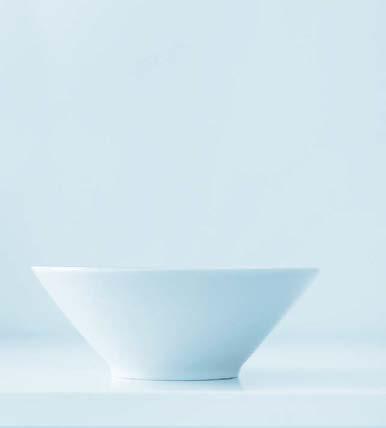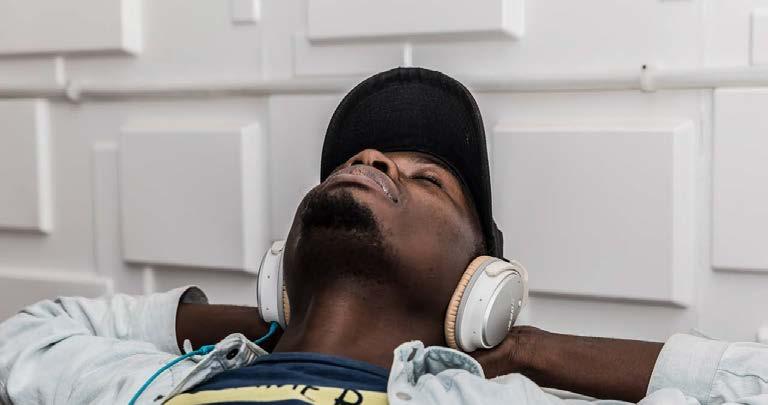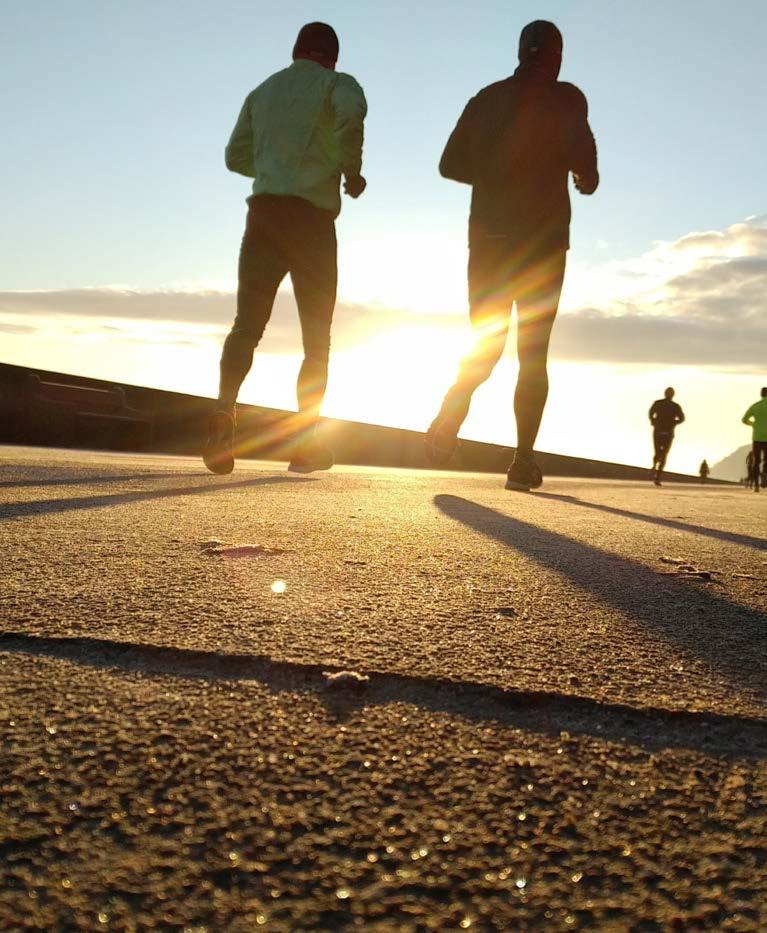Find Your Sweet Spot


HOW TO SORT GOOD STRESS FROM BAD STRESS




INSIGHTS FOR BALANCING STRESS IN DAILY LIFE THE STATION FOUNDATION
STRESS & SUCCESS PRACTICAL
®
PERFORMANCE
OPTIMUM
PLEASE NOTE These materials are intended for participant’s personal purposes only. Do not copy or disseminate any of this material in any form. ©2023 The Station Foundation. All rights reserved.




©2023 The Station Foundation. All rights reserved.
Little Stress Can Keep You From Reaching Your Potential.
Much Can Harm Your Performance. INCREASING STRESS PERFORMANCE I’M SO BORED I’M ON A ROLL! AAARGH!! YIKES! IT’S OUT OF CONTROL HEY, THIS MIGHT BE GOOD WHERE TO FIND THAT SWEET SPOT FIND BALANCE AT THE INTERSECTION OF GOOD STRESS AND BAD STRESS STRESS & SUCCESS THE STATION FOUNDATION ® 1 1
Too
Too
Productive Stress vs. Unproductive Stress
Stressors – from work, to raising kids, to workouts – are neither good nor bad by nature. They are neutral. But the way you handle them is key to seeing a change in outcomes. Below is an example of how one’s frame of mind colors an attitude:

example TYPICAL STRESSOR UPCOMING DEADLINE
positive response
Inspired, energized, motivated
Focused and alert
Exploring the edges of comfort zone
Balanced approach (stress, rest, recovery)
Learning, growing, getting stronger
negative response
Weak, worried, demoralized
Distracted and scattered
Not challenging yourself
Not enough rest and recovery
Cortisol and adrenaline rise
Possible muscle loss, fat gain
Body systems disruption
(blood sugar, immunity, metabolic, sleep, and sex hormones)



©2023 The Station Foundation. All rights reserved.
ANY STRESSOR IS NEUTRAL – YOUR RESPONSE TO IT IS KEY
2
3 STRESS & SUCCESS THE STATION FOUNDATION ®
How Your Traits Effect Stress
Some factors in you are innate. But other traits afford a degree of control over how you handle them. The chart below shows traits, permanent ones at the top and those that provide an opportunity for development at the bottom, along with the effects of each aspect of traits as it relates to dealing with stress.
more stress tolerant
less stress tolerant
GENETICS HISTORY
STRESS LOAD ENVIRONMENT
Stress resistant
Practice with handling stress
Moderate




Often outdoors/in nature
Spends time with loved ones
Strong
COPING SKILLS ATTITUDE
Calms self when emotional
Relaxed, optimistic, proactive
Confident, agile, ready for stress
Stress prone
Little practice with stress
Ver y high or very low
Often in clinical/industrial spaces
Little time with loved ones
Weak
Overwhelmed by emotions, paralyzed
Difficulty adapting, pessimistic
Reactionary, sees stress as problem
©2023 The Station Foundation. All rights reserved.
MOST THINGS CAN CHANGE * A FEW DO NOT
COMMUNITY SUPPORT
3 5
PERMANENT CAN BE SHAPED TRAITS CAN BE SHAPED PERMANENT TRAITS STRESS & SUCCESS THE STATION FOUNDATION ®
Stay in Your Stress Sweet Spot
Much like Goldilocks of fairytale fame, humans need stress loads to be more than nothing but less than too much. Knowing your stressors and having effective ways to deal with them is the path to more balance and peace. Thank you, stress sweet spot.
stress too low
Lethargic
Bored
Unfocused
Directionless
Purposeless
stress just right
Energized
Engaged/interested
Actively pursuing goals




Learning/growing
stress too high
Anxious or obsessive
Depressed
Panicked and flailing
Stuck or numb
©2023 The Station Foundation. All rights reserved.
A WELL-BALANCED STRESS LOAD IS LIKE A GOOD FRIEND
4 7
STRESS & SUCCESS THE STATION FOUNDATION ®
How to Cultivate Your Sweet Spot




The simplest way to enjoy success is to begin by breaking things down into steps. This is how we can learn new things, whether we are verbally or visually oriented. Repetition is the second part of making any process your own. These are your best safeguards against crashing and burning.

©2023 The Station Foundation. All rights reserved.
SIMPLE STEPS MAKE YOUR PATH CLEAR
9 STRESS & SUCCESS THE STATION FOUNDATION ®
5
Use These Tips for Inspiration and Energy
1
SET EFFECTIVE GOALS
BEGIN WITH A SIMPLE ACTION
Goals that Motivate Best

Specific and measurable
Challenging but realistic
Broken down into small actions
Focused on process vs outcome
Documented as a plan of daily, weekly, and monthly behaviors




Specific and measurable
One Thing at a Time
Pick a single action that fits with guidelines of step 1. Commit to stay with it for at least 2 weeks. Be sure it is something you are confident is possible to do every day.
2 10 5 STRESS & SUCCESS THE STATION FOUNDATION ® ©2023 The Station Foundation. All rights reserved.
TRACK YOUR PROGRESS

SPEND
TIME WITH COACH/MENTOR
Document

Experiences, Processes, and Outcomes. Ask Yourself:



How do I feel different?
How do I look different?
What have I learned?
What am I proud of accomplishing?
What are my frustrations?
Remember, Help is Good
11
3
Assistance from someone you look up to in this area is a good idea. You want them to hold you accountable, which is what makes the process of growth and change much easier. And it helps them grow as well. 4
5 STRESS & SUCCESS THE STATION FOUNDATION ® ©2023 The Station Foundation. All rights reserved.
STRENGTH ACCEPTS AID
Finally, Do Not Skimp on Your Recovery




Rest and recovery are necessary. Your pets know this one. They stretch before activity and recover afterwards with rest and relaxation. Take a tip from your pets. Respect for your parasympathetic system, which regulates rest and digest functions, will ensure you remain in the zone. This section will introduce you to 5 key aspects of keeping yourself in best parasympathetic shape. This is how you maintain the sweet spot you have established as you move forward.

SCREEN TIME IS ACTUALLY STIMULATING, SO IT WILL NOT HELP YOUR RECOVERY ©2023 The Station Foundation. All rights reserved. 6
13 STRESS & SUCCESS THE STATION FOUNDATION ®
Effective Activities for Rest and Recovery

a




PARASYMPATHETIC ACTIVITIES
Walking outside
Moderate sun exposure
Enjoying nature
Low-key music
Gentle massage
Deep breathing
Laughing
Snuggling (loved one/pet)
Yoga/slow stretching
Having sex
6
14
STRESS & SUCCESS THE STATION FOUNDATION ® ©2023 The Station Foundation. All rights reserved.
REMINDER: SCREEN TIME IS ACTUALLY STIMULATING, SO IT WILL NOT HELP YOUR RECOVERY
Easy swimming
Hot tub/sauna
Non-competitive play
Mindfulness/meditation





Sipping green tea


6 15
©2023 The Station Foundation. All rights reserved. STRESS & SUCCESS THE STATION FOUNDATION ®
Effective Activities for Rest and Recovery
A Closer Look at Music’s Special Place
Music enjoys a special role in life. Research suggests music can benefit our physical and mental health in numerous ways. A recent Cambridge study* involving participants from over 50 countries and 6 continents found links between musical preferences and personality appear universal. The findings suggest music offers currently untapped therapeutic benefits.
PARASYMPATHETIC ACTIVITIES: FOCUS ON MUSIC

The power of music
Improve mood
Decrease pain and anxiety
Facilitate opportunities for emotional expression




Playing

a
1
* David M. Greenberg et al, Universals and variations in musical preferences: A study of preferential reactions to Western music in 53 countries., Journal of Personality and Social Psychology (2022). DOI: 10.1037/pspp0000397
16
6 STRESS & SUCCESS THE STATION FOUNDATION ® ©2023 The Station Foundation. All rights reserved.
soft music in the background (and dimming the lights) during a meal can help people slow down while eating and ultimately consume less in one sitting.
MUSIC THAT IS STIMULATING WILL NOT HELP YOU IN THIS EXERCISE

Music’s benefits
Heart healthy. Reduces heart rate, lowers blood pressure, decreases cortisol
Can relieve feelings of anxiety and depression by boosting the brain’s production of dopamine
Can relieve symptoms of depression
Stimulates memories
Can assist in pain management
Can meaningfully reduce perceived intensity of pain




Helps people eat less
Increases workout endurance, Improves physical performance
Increases endurance during a tough exercise session
17
6 STRESS & SUCCESS THE STATION FOUNDATION ® ©2023 The Station Foundation. All rights reserved.
Effective Activities for Rest and Recovery
bPARASYMPATHETIC ACTIVITIES: DAILY MEDITATION


Boosts the immune system
Improves sleep, mood, emotional regulation, and circadian rhythm



Lowers blood pressure, heart rate, stress hormones, and inflammation

6
18
STRESS & SUCCESS THE STATION FOUNDATION ® ©2023 The Station Foundation. All rights reserved.
MEDITATION BENEFITS ARE DELIVERED OVER TIME

Supports development of new brain cells, neural connections, and gray matter



Sharpens focus, mental clarity, attention, memory, and recall (even when not meditating)

6 19
STRESS & SUCCESS THE STATION FOUNDATION ® ©2023 The Station Foundation. All rights reserved.
Parasympathetic Activities: focus on daily meditation
Developing Positive Sleep Hygiene




How you prepare for bed can determine how easily you fall asleep. A pre-sleep playbook including some of these tips can put you at ease and make it easier to fall asleep when you want.

1 c PARASYMPATHETIC ACTIVITIES: FOCUS ON SLEEP HYGIENE

Sleep hygiene basics
Keeping a stable sleep schedule
Making your bedroom comfortable and free of disruptions
Following a relaxing pre-bed routine
Building healthy habits during your day can contribute to ideal sleep hygiene
Crafting Sustainable and Beneficial Routines
Makes Healthy Behaviors
Feel Almost Automatic, Creating an Ongoing Process of Positive Reinforcement
6
20 STRESS & SUCCESS THE STATION FOUNDATION ® ©2023 The Station Foundation. All rights reserved.
Sleep hygiene benefits
Helps physical and mental health
Improves productivity and overall quality of life




Crafting sustainable and beneficial routines makes healthy behaviors feel almost automatic, creating an ongoing process of positive reinforcement
Sleep hygiene habits
Optimize your sleep schedule
Create a pre-bed routine
Follow daily routines
Create a pleasant bedroom environment to relax and doze off
continued on next page

21
6
MUSIC THAT IS STIMULATING WILL NOT HELP YOU IN THIS EXERCISE
STRESS & SUCCESS THE STATION FOUNDATION ® ©2023 The Station Foundation. All rights reserved.
Effective Activities for Rest and Recovery
A Closer Look at Positive Sleep Hygiene 6
2 c PARASYMPATHETIC ACTIVITIES: FOCUS ON SLEEP HYGIENE continued
Set your sleep schedule
Having a set schedule normalizes sleep as an essential part of your day and gets your brain and body accustomed to getting the full amount of sleep that you need.
Have a Fixed Wake-Up Time
Try to wake up at the same time since a fluctuating schedule keeps you from getting into a rhythm of consistent sleep.
Prioritize Sleep
It’s vital to treat sleep as a priority. Calculate a target bedtime based on your fixed wake-up time.
Make Gradual Adjustments
If you want to shift your sleep times, make small, step-by-step adjustments of up to an hour or two.
Don’t Overdo It With Naps
Try to keep naps relatively short and limited to the early afternoon.
Follow a Nightly Routine
How you prepare for bed can determine how easily you’ll be able to fall asleep. A pre-sleep playbook including some of these tips can put you at ease and make it easier to fall asleep when you want to.
Keep Your Routine Consistent
Following the same steps each night, can reinforce in your mind that it’s bedtime.
Budget 30 Minutes For Winding Down
Soft music, light stretching, reading, and/or relaxation exercises.
Dim Your Lights
Try to keep away from bright lights because they can hinder the production of melatonin, a hormone that the body creates to facilitate sleep.
Unplug From Electronics
Build in a 30-60 minute pre-bed buffer time that is device-free.




22 STRESS & SUCCESS THE STATION FOUNDATION ® ©2023 The Station Foundation. All rights reserved.
Test Methods of Relaxation
Instead of making falling asleep your goal, it’s often easier to focus on relaxation. Meditation, mindfulness, paced breathing, and other relaxation techniques can put you in the right mindset for bed.

Don’t
Toss and Turn

If after 20 minutes you haven’t gotten to sleep, get up and stretch, read, or do something else calming in low light before trying to fall asleep again.
Cultivate Healthy Daily Habits
It’s not just bedtime habits that play a part in getting good sleep.
Incorporating positive routines during the day can support your circadian rhythm and limit sleep disruptions.



Get Daylight Exposure
Light, especially sunlight, is one key driver of circadian rhythms that can encourage quality sleep.
Be Physically Active
Regular exercise can make it easier to sleep at night and also delivers a host of other health benefits.
Don’t Smoke
Nicotine stimulates the body in ways that disrupt sleep, which helps explain why smoking is correlated with numerous sleeping problems.
Reduce Alcohol Consumption
Alcohol may make it easier to fall asleep, but the effect wears off,
continued on next page
6
23 STRESS & SUCCESS THE STATION FOUNDATION ® ©2023 The Station Foundation. All rights reserved.
Instead of making falling asleep your goal, focus on relaxation
Effective Activities for Rest and Recovery
A Closer Look at Positive Sleep Hygiene 6




2 c PARASYMPATHETIC ACTIVITIES: FOCUS ON SLEEP HYGIENE continued
disrupting sleep later in the night. As a result, it’s best to moderate alcohol consumption and avoid it later in the evening.
Cut Down on Caffeine in the Afternoon and Evening
Because it’s a stimulant, caffeine can keep you wired even when you want to rest, so try to avoid it later in the day. Also be aware if you’re consuming lots of caffeine to try to make up for lack of sleep.
Don’t Dine Late
Eating dinner late, especially if it’s a big, heavy, or spicy meal, can mean you’re still digesting when it’s time for bed. In general, any food or snacks before bed should be on the lighter side.
Restrict In-Bed Activity
To build a link in your mind between sleep and being in bed, it’s best to only use your bed for sleep with sex the one exception.
Optimize Your Bedroom
A central component of sleep hygiene is your sleep environment. To fall asleep more easily, you want your bedroom to emanate tranquility. While what makes a bedroom inviting can vary from one person to the next, these tips may help make it calm and free of disruptions.
Have a Comfortable Mattress and Pillow
Your sleeping surface is critical to comfort and pain-free sleep, so choose the best mattress and best pillow for your needs wisely.
Use Excellent Bedding
The sheets and blankets are the first thing you touch when you get into bed, so it’s beneficial to make sure they match your needs and preferences.
24
STRESS & SUCCESS THE STATION FOUNDATION ® ©2023 The Station Foundation. All rights reserved.
Cultivate Healthy Daily Habits continued
Set a Cool Yet Comfortable Temperature
Fine-tune your bedroom temperature to suit your preferences, but err on the cooler side (around 65 degrees Fahrenheit)



Block Out Light
Use heavy curtains or an eye mask to prevent light from interrupting your sleep.
Drown Out Noise
Ear plugs can stop noise from keeping you awake, and if you don’t find them comfortable, you can try a white noise machine or even a fan to drown out bothersome sounds.
Try Calming Scents
Light smells, such as lavender, may induce a calmer state of mind and help cultivate a positive space for sleep.
Fine-tune your bedroom to give yourself every advantage to develop your own positive sleep hygiene


25
6 STRESS & SUCCESS THE STATION FOUNDATION ® ©2023 The Station Foundation. All rights reserved.
Effective Activities for Rest and Recovery
A Closer Look at Nutrition and Memory


What is the best recipe for maximizing memory? There still is a lot to learn about crafting a brain-healthy diet. However, for now, the best bet for rich memories is forgoing unhealthy fat and remembering to diversify your plant portfolio.
d PARASYMPATHETIC ACTIVITIES: FOCUS ON NUTRITION AND MEMORY



Boost memory
The following foods provide brain-boosting memory function:

Fruits
Vegetables
Whole grains and legumes
Fish
Healthier fats
Herbs or seeds
STRESS & SUCCESS THE STATION FOUNDATION ®
6 26 ©2023 The Station Foundation. All rights reserved.
JUNK FOOD LEVERAGES OUR BODY’S NEED FOR FUEL, REPLACING NUTRITION WITH EMPTY CALORIES
One of the biggest health impairments is society’s reliance on processed foods. These foods are high in flours and sugar and train the brain to crave
BRAIN PHYSIOLOGY CHANGES WHEN YOU PULL ADDED SUGARS AND REFINED CARBS FROM YOUR DIET


more of them, rather than nutrient-rich foods such as fruits and vegetables.


A lot of the processed foods we eat are highly addictive and stimulate the dopamine centers in our brain, which are associated with pleasure and reward.

In order to stop craving unhealthy foods, you must stop eating those foods. Once you eliminate added sugars and refined carbohydrates from your diet, the physiology in your brain actually start to change.
continued on next page

6
STRESS & SUCCESS THE STATION FOUNDATION ® ©2023 The Station Foundation. All rights reserved.
Effective Activities for Rest and Recovery
A Closer Look at Positive Sleep Hygiene 6




1 PARASYMPATHETIC ACTIVITIES: FOCUS ON SLEEP HYGIENE continued
Stress and Depression
Sugar and processed foods can lead to inflammation throughout the body and brain, which may contribute to mood disorders, including anxiety and depression.
When feeling stressed or depressed, it’s often processed foods we reach for in search of a quick pick-me-up.
According to the American Dietetic Association, people tend to either eat too much or too little when depressed or under stress.
Eat too much and you find yourself dealing with sluggishness and weight gain.
Eat too little and the resulting exhaustion makes this a hard habit to break.
In either case, poor diet during periods of stress and depression only makes matters worse. This cycle is a vicious one, but it can be overcome.
A Healthy Gut
YOU ARE WHAT YOU EAT
The gut and brain send messages to one another through the vagus nerve.
The gut is able to influence emotional behavior in the brain.
The brain can alter the type of bacteria living in the gut.
According to the American Psychological Association, gut bacteria produce an array of neurochemicals that the brain uses for the regulation of physiological and mental processes, including mood.
It’s believed 95 percent of the body’s supply of serotonin, a mood stabilizer, is produced by gut bacteria. Stress is thought to suppress beneficial gut bacteria.
28
d STRESS & SUCCESS THE STATION FOUNDATION ® ©2023 The Station Foundation. All rights reserved.
Mindful Eating
Paying attention to how you feel when you eat, and what you eat will help ensure you’re consuming food for fuel and nourishment rather than as a means to manage emotional stress
Keep a food journal to help stay present and focused during meals.
• Knowing what, where and when you eat provides insight into your patterns.
• If you find you overeat when stressed, it may be helpful to stop what you’re doing when the urge to eat arises, and to write down your feelings.
• If you undereat, it may help to schedule five or six smaller meals instead of three large ones. (By doing this, you may discover what’s really bothering you. )




Brain Food
Your brain and nervous system depend on nutrition to build new proteins, cells and tissues. In order to function effectively, your body requires a variety of carbohydrates, proteins and minerals.
For nutrients that improve mental functioning, nutritionists suggest eating meals and snacks that include a variety of foods.

29
6 STRESS & SUCCESS THE STATION FOUNDATION ® ©2023 The Station Foundation. All rights reserved.
Effective Activities for Rest and Recovery



e


PARASYMPATHETIC ACTIVITIES: BEING OUT OF DOORS
Getting out into nature lowers stress hormones, improves mood, and immunity, providing a jump on energy and motivation to remain in your sweet spot when facing your next challenge.

6
30
STRESS & SUCCESS THE STATION FOUNDATION ® ©2023 The Station Foundation. All rights reserved.





6 31 STRESS & SUCCESS THE STATION FOUNDATION ® ©2023 The Station Foundation. All rights reserved.
Effective Activities for Rest and Recovery


f


BALANCE YOUR EXERCISE ROUTINE
Exercise relieves stress by increasing blood flow, getting you outside, burning calories and stimulating your parasympathetic nervous system.

Most effective: A blend of intense strength training, conditioning, cardio, and low-intensity recovery proves to be the best routine.
When stressors are up, decrease your intense exercise. When they are down, increase your intense exercise.
6
32
STRESS & SUCCESS THE STATION FOUNDATION ® ©2023 The Station Foundation. All rights reserved.
WHEN STRESSORS ARE UP, DECREASE YOUR INTENSE EXERCISE.
WHEN STRESSORS SUBSIDE, RETURN TO INTENSE EXERCISE.





6
33 STRESS & SUCCESS THE STATION FOUNDATION ® ©2023 The Station Foundation. All rights reserved.
Effective Activities for Rest and Recovery
PRACTICE SELF-COMPASSION





Ask for support when you need it
Get coaching if you feel stuck
Get counseling if you feel helpless

Know your limits and honor them
Unplug at least once a week
6
g 34
STRESS & SUCCESS THE STATION FOUNDATION ® ©2023 The Station Foundation. All rights reserved.





6 35 STRESS & SUCCESS THE STATION FOUNDATION ® ©2023 The Station Foundation. All rights
reserved.
APPENDIX
LIST OF SOURCES
Eating Well for Mental Health
Consuming fewer processed foods can lead to better brain and emotional health.
– Sutter Health
https://www.sutterhealth.org/health/nutrition/eating-well-for-mental-health
Maximize memory function with a nutrient-rich diet
– Mayo Clinic Health System Staff
https://www.mayoclinichealthsystem.org/hometown-health/speaking-of-health/maximize-memory-function-with-a-nutrient-rich-diet
9 Health Benefits of Music
Thursday, December 31, 2020 10:00 AM
https://www.northshore.org/healthy-you/9-health-benefits-of-music/
The Health Benefits of Music
https://www.piedmont.org/living-better/the-health-benefits-of-music
Sleep Hygiene
What it is, why it matters, and how to revamp your habits to get better nightly sleep
Updated September 29, 2022
Written by Eric
Sunni
Medically Reviewed by Dr Nilong Viyasa
https://www.sleepfoundation.org/sleep-hygiene




Good stress, bad stress: Finding your sweet spot
By Krista Scott-Dixon, PhD, Brian St. Pierre, MS, RD
https://www.precisionnutrition.com/good-stress-bad-stress
©2023 The Station Foundation. All rights reserved.
36 STRESS & SUCCESS THE STATION FOUNDATION ®
PHOTOGRAPHY CREDITS
Cover




Tachometer photo by mike marchi on Unsplash
Page 09
Steps photo by Kanhaiya Sharma on Unsplash
Page 10
Crunches photo by Alexander Redl on Unsplash
Page 11
Fitness class photo by Gabin Vallet on Unsplash
Page 13
Ripples photo by Sami Takarautio on Unsplash
Page 14
Male in pool photo by Logan Stone on Unsplash
Page 15
Tea cup photo by Mockup Graphics on Unsplash
Page 16
Female listening photo by Jackson Simmer on Unsplash
Photo of bowl by Konrad Wojciechowski on Unsplash
Page 17
Male enjoying music photo by Ovinuchi Ejiohuo on Unsplash
Page 18
Female meditating by Getty Images
Male meditating by Getty Images
Page 19
Orchid photo by fred tromp on Unsplash
Page 20
Female sleeping photo by Dmitry Ganin on Unsplash
Swan sleeping photo by Tristan B. on Unsplash
Page 21
Calm bedroom photo by Blake Carpenter on Unsplash
Page 23
Male hugging dog photo by Eric Ward on Unsplash
Page 25
Dark bedroom shot photo by Jake Charles on Unsplash
Page 26
Male thinking photo by Bruce Dixon on Unsplash
Salad photo by Dose Juice on Unsplash
Page 27 Female eating photo by Clark Douglas on Unsplash. Walnut in shell above photo by Mockup Graphics on Unsplash
Page 29
Fruit on table photo by Cecilia Par on Unsplash
Page 30
Daisy photo by Christian Widell on Unsplash
Pet dog photo by Ruby Schmank on Unsplash
Page 31
Hand out of water photo by Yoann Boyer on Unsplash
Page 32
Workout photo by GRAHAM MANSFIELD on Unsplash
Page 33
Runners photo by Huckster on Unsplash
Page 34
Female hugging dog photo by Helena Lopes on Unsplash
Roses to hide behind photo by Zeynep Sümer on Unsplash
Page 35
Male in forest photo by Malte Schmidt on Unsplash
37
APPENDIX
STRESS & SUCCESS THE STATION FOUNDATION ®

THE STATION FOUNDATION f www.facebook.com/TheStationFoundation 1627 West Main St. Suite #258 Bozeman, MT 59715 info@thestationfoundation.org 406.763.5505 l twitter.com/THESTATIONfndn ©2023 The Station Foundation. All rights reserved.














































